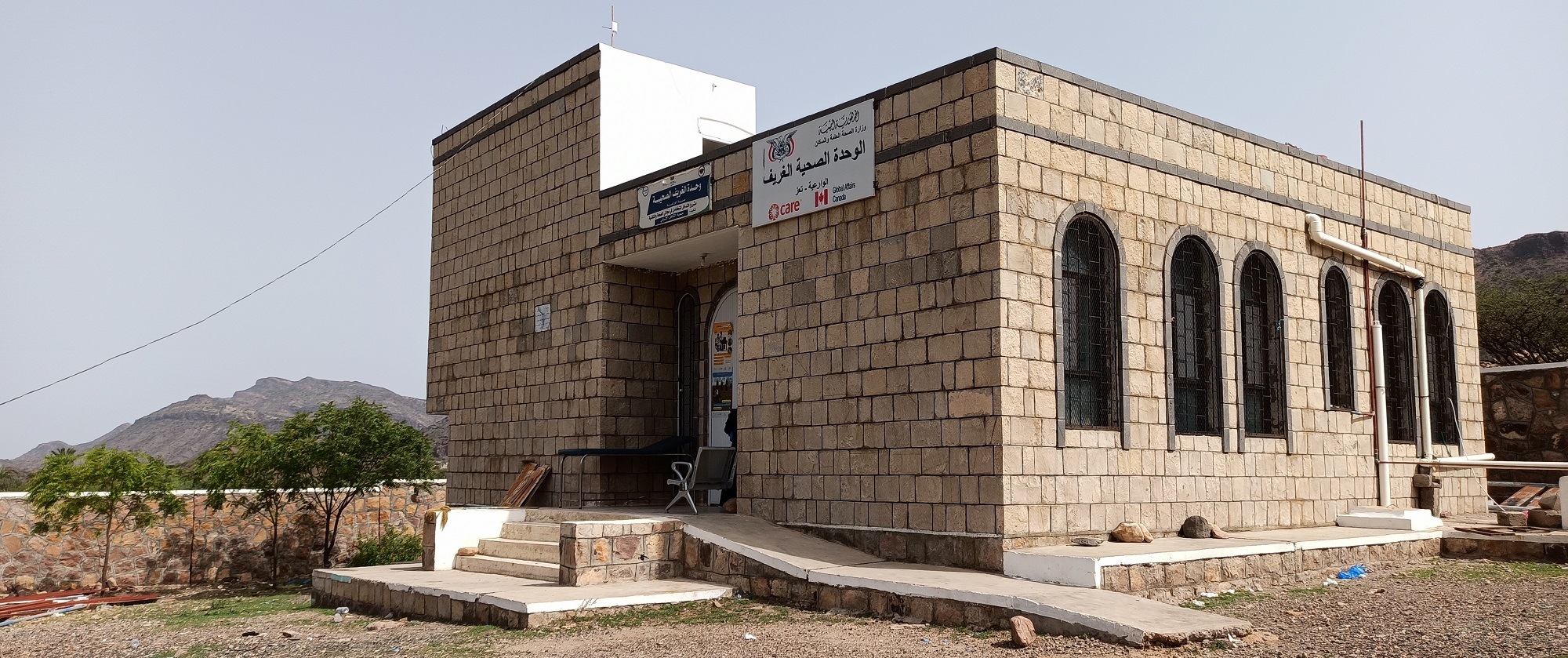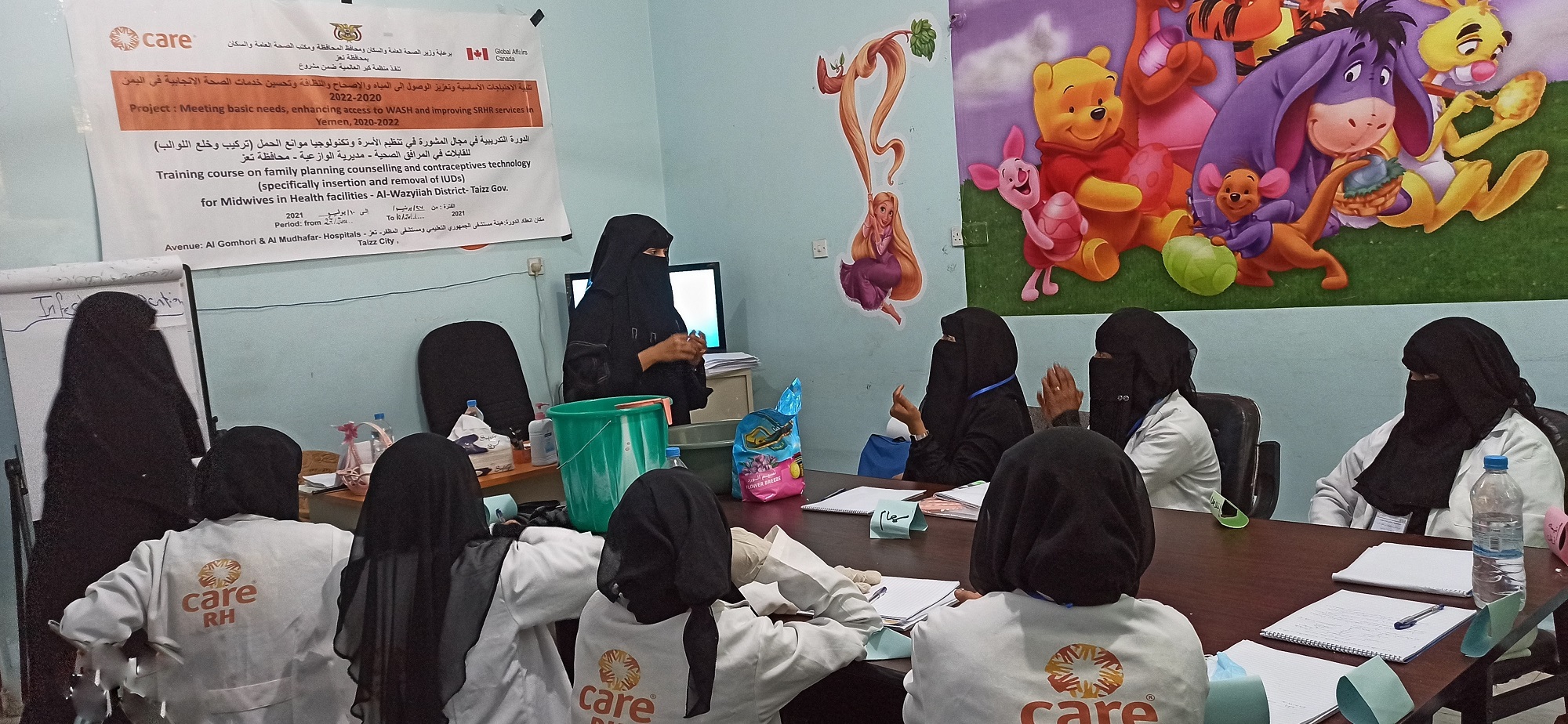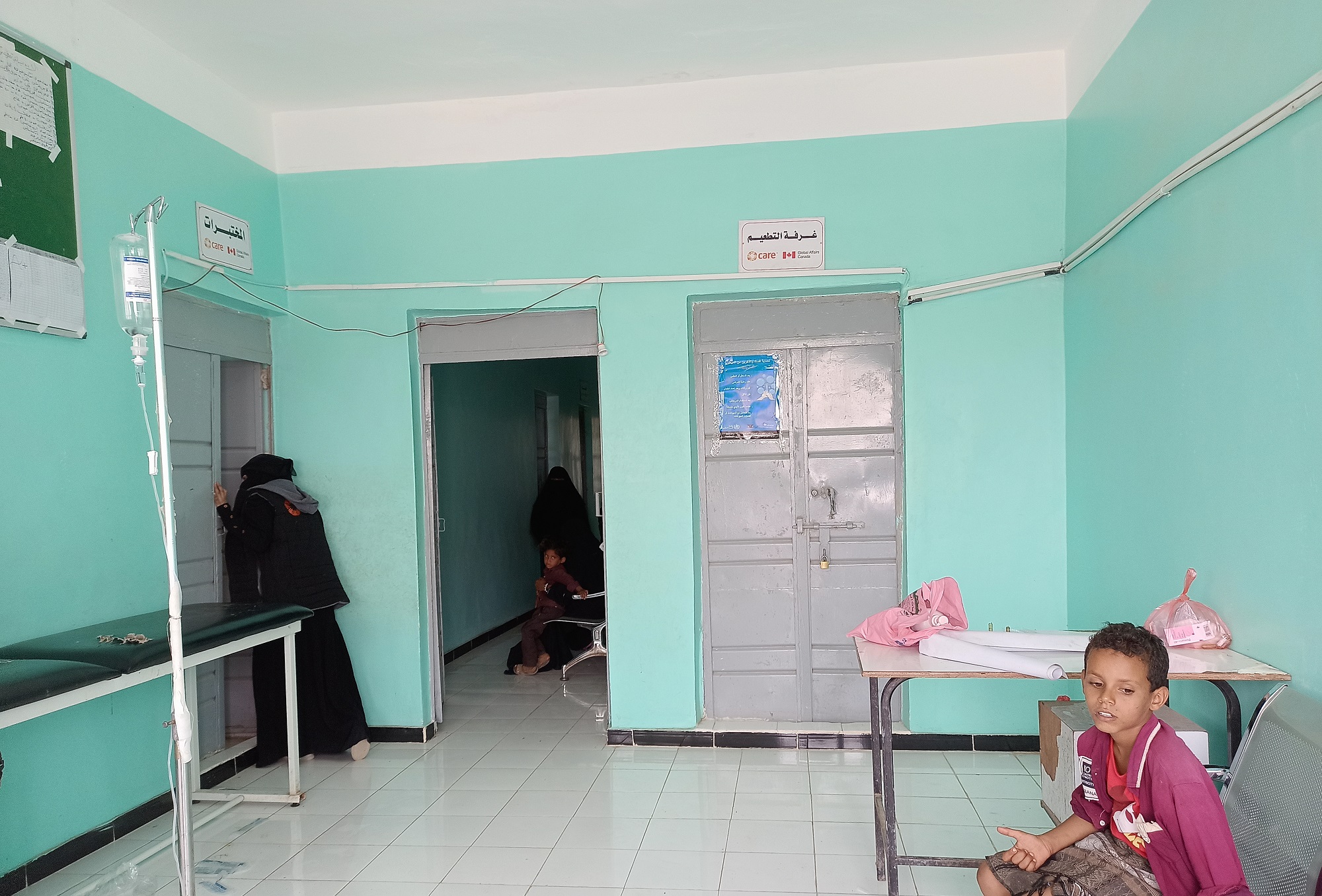In the southwest of Yemen, Al Wazi’iyah district in Taiz Governorate is one of the country’s most conflict-affected districts. The general health system in Al Wazi’iyah has severely deteriorated under the strain of the conflict, and access to reproductive health services, including maternal health and family planning services, has decreased substantially as a result.
Fatima is a 35-year-old mother of four children. She works as a midwife and is very enthusiastic to provide preventive and promotional reproductive health literacy to other women and girls in her community. “I used to receive many emergency cases of pregnancy, and we couldn’t give them a helping hand because we lacked the right knowledge. Some of them sadly died,” says Fatima.
Women of childbearing age, particularly pregnant and lactating women, have limited or no access to reproductive health services including antenatal care, safe delivery, postnatal care, family planning and emergency obstetric and new-born care. The country has the highest maternal mortality ratio in the Arab region, with an estimated 12 deaths a day based on UNICEF 2019 figures, placing it among the “high alert” countries for maternal mortality in the Fragile Countries Index.
Poor coverage, lack of specialized staff and essential medical supplies as well as a dire shortage of female doctors all affect maternal health-seeking behavior, particularly for the 75 per cent of women living in Yemeni rural areas. “Despite the importance of family planning methods, society refuses to apply such methods due to insufficient public awareness,” says Fatima.
Like many, Fatima worries about her own children’s health, given their weak immunity and the spread of Coronavirus disease (COVID-19). Midwives are exposed to the risks of contracting viruses and to epidemics due to constant visits to homes. “I was on a field visit to vaccinate a mother and she was infected with the Coronavirus,” Fatima states. “I was afraid of the infection because I did not have any prevention tools against the virus”.
Fatima works in Al-Ahyoq health facility which has been destroyed and is therefore not equipped to serve the community. “We used to refer patients to other hospitals because we didn’t have enough tools. Unfortunately, many of them can’t afford to travel, and some get complications because of the bumpy road and the long distance,” Fatima explains the suffering of pregnant women in Al Wazi’iyah district and poor conditions of the health facility in the district.
CARE provides support to four health facilities in Al Wazi’iyah district through rehabilitation activities in reproductive health wards, provision of medical equipment and medicines, training midwives and other healthcare staff, provision of Information, Education and Communications (IEC) material, support in recordkeeping (registration books), laboratory and prescription notes as well as providing monthly incentives to the facility’s employees.
Additionally, Community Health Workers and Community Based Health Committees have been trained by CARE on reproductive health and reproductive rights, to increase the communities’ understanding of the importance of reproductive health services available to them. CARE is also providing healthcare services during COVID-19 pandemic for midwives serving the communities, to protect themselves and others from being infected. Ten midwifery equipment sets, including bags and masks for neonatal resuscitation have also been provided.




